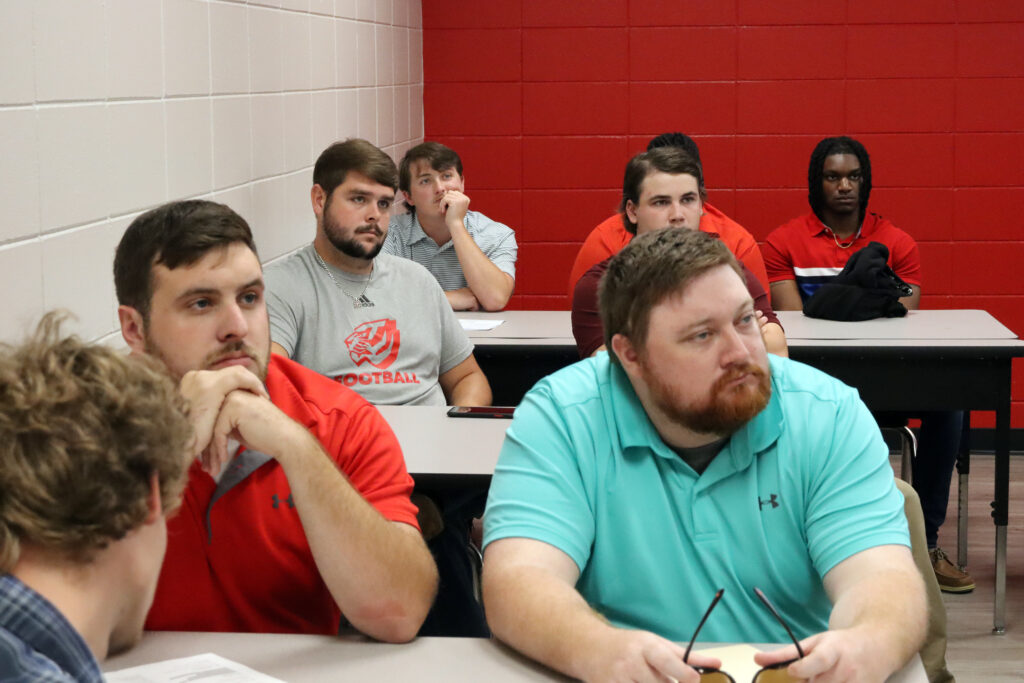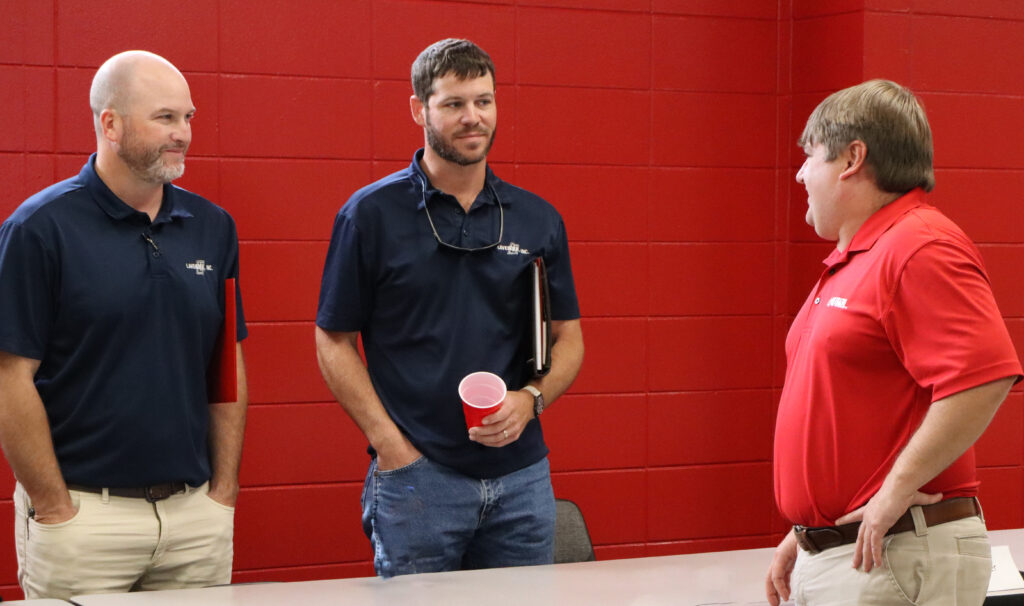
Story: Lisa Sollie
One way The University of West Alabama’s Division of Engineering Technology ensures that they help students graduate and become better all-around employees is through expertise offered by their ET advisory board. The board comprises 15 Alabama industry professionals, eight of whom are UWA alumni and now work for corporations like WestRock, Volkert Engineering, Two River’s Lumber, Cemex and Lavender, Inc.
“The board plays a critical role in the success of the program,” noted Dr. Donnie Cobb, chair of Engineering Technology. “We rely on them to offer suggestions on how to improve our programs to better quality our students for internships and co-ops and to make sure our students are prepared for full-time employment.”
The advisory board must also approve curriculum and degree offerings to meet future accreditation standards from the Accreditation Board for Engineering and Technology (ABET). This includes a proposal by the division for two new degree programs, Electrical Engineering Technology, and Mechanical Engineering Technology, which the advisory board gave their approval at their October board meeting. After receiving approval from UWA’s University Academic Council (UAC) in November, the degree programs will be submitted to the Alabama Commission on Higher Education Board (ACHE) in December and if needed, The Southern Association of Colleges and Schools Commission on Colleges (SACSCOC), the body for the accreditation of degree-granting higher education institutions in the Southern states.
Matt Lavender, a 2005 UWA alumnus, believes there is a twofold purpose for his role on the advisory board he’s served on since 2018.

“Since my cousin Webb and I graduated from the program, I think we can help identify what UWA students coming out of the program bring to the table and what they could lack, since we’ve had several engineering technology students intern and co-op with our company over the years and even some who have worked for us. And because we are in the field, we can also help make sure UWA instructors stay relevant on what they are teaching so coursework does not become outdated.”
Lavender, along with two brothers and two first cousins, assumed ownership of the family business, Lavender, Inc., four years ago. His father and uncle started the company in Aliceville, Alabama in 1985.
One thing he noted while he was a student at UWA, and since he’s been on the board, is the program’s continued emphasis on hands-on learning. “Students learn and do many of the things they would actually do on the job, and that makes a big difference,” said Lavender. Another key component that sets UWA’s program apart is soft skills. “Many board members over the years have stressed students coming out of the program need to have soft skills, such as how to communicate well, be respectful, dress appropriately, use a firm handshake. I feel the instructors have listened and are doing a great job to emphasize the importance of these skills.”
Trey Sullivan, a junior engineering technology major from Washington County, Alabama, often promotes the program with prospective high school students when out recruiting with the UWA football team.
“It’s a good program and I think we need to get the word out and let others know about it too. It’s very hands-on, not just theoretical, which I believe, makes a real difference out in the field,” noted Sullivan, who put his knowledge and skills to the test as an intern the past two summers.
“I’d estimate 90 percent of what I dealt with my first internship at Packaging Corporation of America (PCA), I learned in Programmable Logic Controller I and II courses at UWA, so I was definitely prepared,” he said, “but it was still eye-opening to actually see everything put into operation on the job.” His second internship at International Paper was in power distribution and according to Sullivan, was more an administrative role, helping oversee projects, like the annual outage the plant experiences. “One of the things I helped with was planning the conversion of the entire mill to temporary power. It was a huge process, but I had the knowledge and skill set I needed, and of course I learned many new things while interning at both companies as well,” he added. Scheduled to graduate in December 2024, Sullivan’s employment options are plentiful. “That was one of the determining factors I looked at when going into engineering technology,” Sullivan admitted, “and there are numerous chemical and power plants, paper and steel mills all around Washington County, Alabama.”
“UWA is a rural school, and the majority of our students come here from within a 100-mile radius of the University,” noted Cobb. “We believe our students, if hired, would not only be well-prepared employees ready to work, but ones that will stay, get involved and give back to the community they live in—just like many of our current board members are doing.”